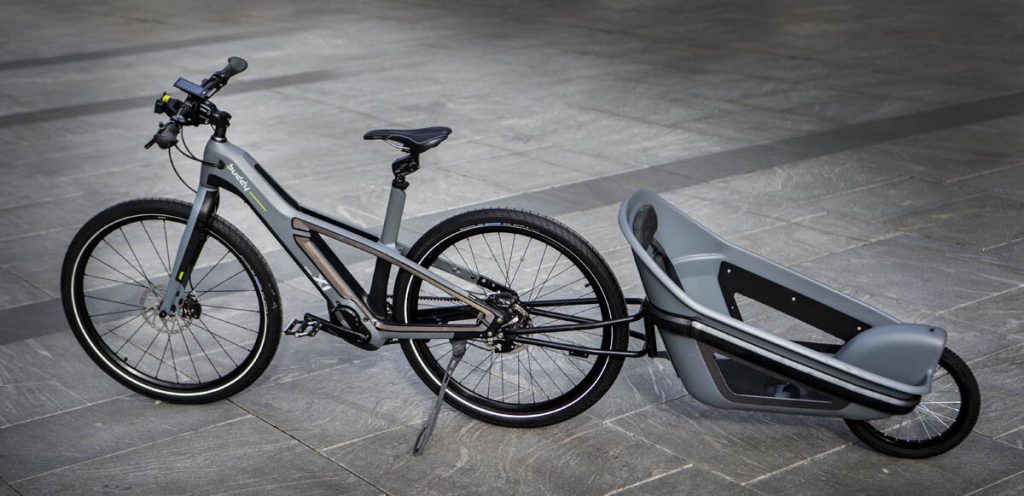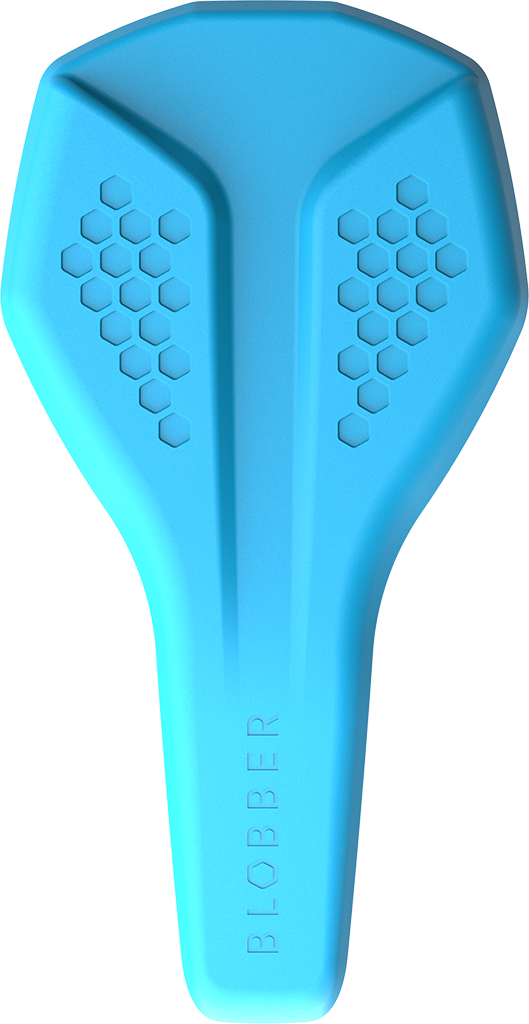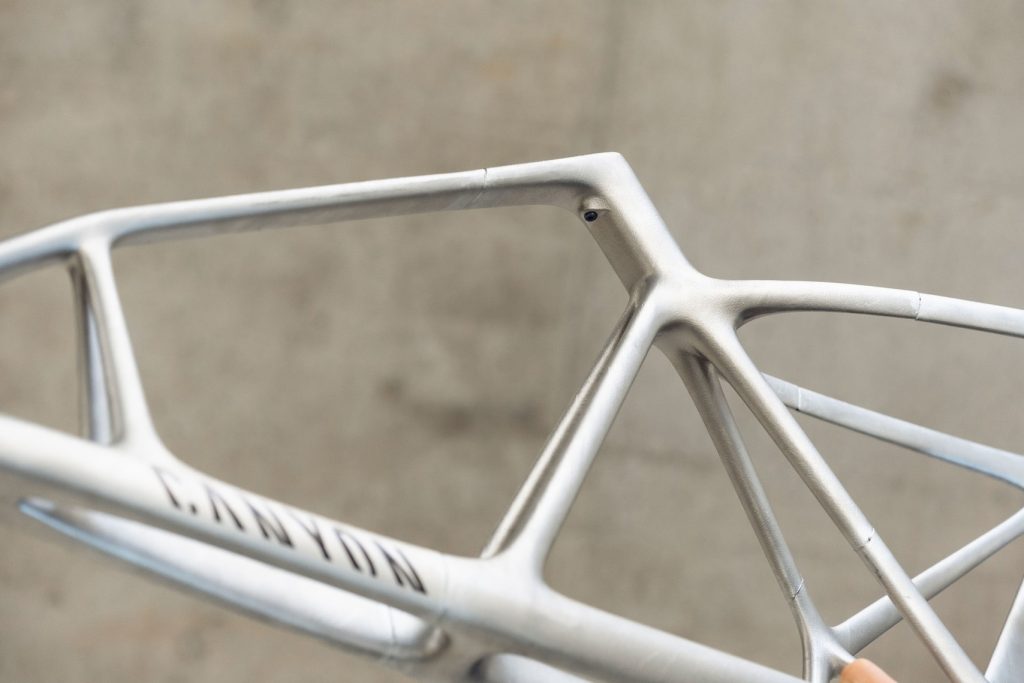Materials specialist Lehvoss Group Partnered with E-bike manufacturers Buddy Bike and Isoco Bikes to develop the Isoco X1 e-bike.
Also sold as the Buddy X1, the e-bike has been designed with sustainability in mind. The bike’s thermoplastic frames reportedly possess a 68% lower carbon footprint than traditional aluminum frames.
Additionally, the frames are 100% recyclable, whilst being light and durable. At the end of their life cycle, the material can be re-used in the production of new high-quality components.
Lehvoss’ Customized Polymer Materials Director of Marketing, Thomas Collet, told 3D Printing Industry that 3D printing was used to develop and prototype some of the ISOCO X1’s parts.
Manufactured through a combination of injection molding and fluid injection technology (FIT), the ISOCO X1 frames are lighter than their aluminum counterparts. Thermoplastic carbon fiber plastics from Lehvoss are leveraged in the production process. According to ISOCO, these are the first injection-molded carbon composite bicycle frames to hit the market.
The sustainable e-bike is currently being put through its paces as part of the Lehvoss Xtreme-Tech expedition, a 1,300 km cycle through North Africa. Riders Mike Fuchs, Oliver Gehrking and David Arlandis are participating in the mission, which seeks to prove whether the thermoplastic bicycle frames and components can withstand the tough demands of long-distance mountain and road riding.

Lehvoss materials enable sustainable bicycle production
The development of the ISOCO X1 began last year after Lehvoss signed an exclusive agreement with Isoco Bikes and bike frame manufacturer V Frames to introduce fiber-reinforced compounds into its bike production.
As part of this agreement, V Frames hopes to achieve mass production of injection-molded frames, forks, cockpits, and other components for several OEMs by 2027. The company is targeting production volumes of 1 million components at the Isoco facility in Schmiedefeld, Thuringia.
Isoco claims that its WIT injection molding technology can already produce up to 1,000 frames per day, reaching 3 million end-use parts per year.
This is not the only time Lehvoss material has been leveraged to manufacture end-use bike components. German Bicycle saddle manufacturer BLOBBER uses Lehvoss’s thermoplastic materials to 3D print its bike saddles.
Lehvoss’ LUVOTECH eco PA GF15 HS BK material is used to produce the saddle’s support structure. Additionally, the internal lattice is 3D printed from LUVOSINT TPU, enabling customized cushioning performance.
BLOBBER products are designed to offer optimal comfort when cycling, and are said to be the first air saddles to incorporate a double chamber system and an integrated 3D pressure damping element. These features are designed to ensure an even and rapid distribution of air, supporting the natural pendulum movement when cycling.

3D printed bikes
A survey on the future of 3D printing highlighted that the use of additive manufacturing is growing within the consumer market and the production of end-use products.
This is a trend that can already be seen within the production of high-end bicycles. In 2022, UK-based engineering firm Renishaw expanded its partnership with Welsh bespoke bicycle manufacturer Atherton Bikes to develop its in-house 3D printing capabilities.
The bike manufacturer adopted additive in-house manufacturing technology to increase the durability of its World Cup winning bikes, and reduce part manufacturing times. Atherton Bikes invested in RenAM 500Q to 3D print the metal bike components, which include titanium lugs for its frames.
Previously, Renishaw had collaborated with Great British Cycling Team, Lotus Engineering and Hope Technology to develop a part-3D printed track bike for the Tokyo 2020 Olympic Games.
2022 also saw bicycle manufacturer Canyon debut a concept 3D printed mountain bike prototype which aimed to demonstrate a more sustainable method of bike production. Collaborating with 3D printing software company Materialise, Canyon 3D printed the bikes frame and fork as part of Bike Magazine Germany’s ‘Ride Green’ campaign.

Elsewhere, former Formula 1 world champion Fernando Alonso’s lifestyle brand Kimoa launched an e-bike with a 3D printed bicycle frame. The unibody frame has been designed to be highly customizable, as well as stronger and more lightweight than components that are bolted together.
The frames were 3D printed by additive manufacturing composites company Arevo’s AQUA 3D printers. However, earlier this month the company auctioned off its ABB IRB 4600 Robots, 3D Printers, SuperStrata Urban Bikes, Chillers, and IPG Diode Laser Modules. The Arevo has now ceased operations, fulfilling 96% of its crowdfunded 3D printed bike orders.
Subscribe to the 3D Printing Industry newsletter to keep up to date with the latest 3D printing news. You can also follow us on Twitter, like our Facebook page, and subscribe to the 3D Printing Industry Youtube channel to access more exclusive content.
Are you interested in working in the additive manufacturing industry? Visit 3D Printing Jobs to view a selection of available roles and kickstart your career.
Featured image shows the Isoco X1 bike, developed in collaboration with Lehvoss and Buddy Bikes. Photo via Isoco Bikes.


